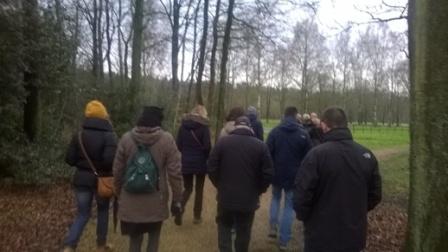We have been nomads longer than sedimentary. From our time we spent 80% on food-related activities (sowing, harvesting, preserving, preparing, eating, searching, washing dishes ...), while nowadays Fast Food still consumes too much time, so we also have simultaneously to watch TV, chat, ...
In order to survive on what nature gives us, we must know the nature of course. This applies to all parts.
Knowledge of (edible) plants and (medicinal) herbs, seeds, roots and tubers, flowers
of mushrooms
of shrubs and trees, woods, their use and fruits
of minerals
of animals and their habits.
 On all these issues, there are dozens of books and documentaries. But if you need the knowledge tomorrow, you cannot just acquire it quickly.
On all these issues, there are dozens of books and documentaries. But if you need the knowledge tomorrow, you cannot just acquire it quickly.
It is much better to walk with experts for a few years and to share their experience. Numerous environmental organizations offer opportunities.
Herbal walks, bird watching, identify insects, geologists on the road... this is the coziest and most social way to collect necessary knowledge in your own neighborhood. You’ll find also interesting contacts and fine hobbies that way.
During our lifetime we eat around 55 tons of food. In 1915, the average American spent 50% of his income on food. Around 2019 that is only 6%. And then we usually eat processed and unhealthy food with more obesity than hunger around us.
We try to gather important, interesting or strange facts in relation to survival but do not take the place of determination - and other experts.
If you can reliably recognize edible things you can also collect them at the most appropriate time. It makes little sense to pick nuts prematurely, they do fall off when they are ripe. With soft fruit you don’t wait of course, it should almost rot. If you harvest too early is not yummy.
We have a new hood to the top of the TV.
With all those cooking shows nowadays...
